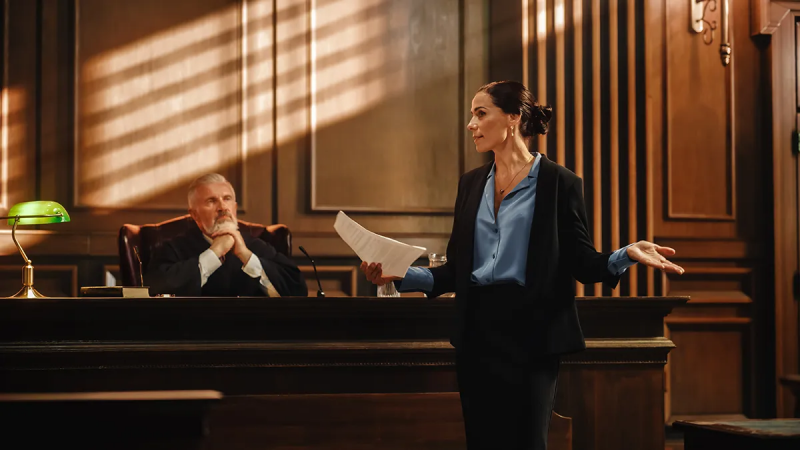
In every criminal case there are two sides. On one side is the defense attorney, who represents the person accused of a crime. On the other side is the prosecutor, who represents the government and works to prove that the law has been broken. Prosecutors are key players in the justice system because they not only seek accountability for crimes but also must ensure that the process is fair and just.
What Do They Do?
Prosecutors represent the government in criminal cases. Their main responsibility is to prove beyond a reasonable doubt that a person accused of breaking the law is guilty. This involves reviewing police reports, speaking with witnesses, analyzing evidence, and presenting the case in court.
They also make important decisions about whether charges should be filed in the first place. For example, if police arrest someone for vandalism, the prosecutor decides if there is enough evidence to move forward with charges or if the case should be dismissed.
Prosecutors do not only aim for convictions. They are also expected to seek justice, which means they must act fairly and ensure that the rights of defendants are respected during the process.
Where Do They Work?
Prosecutors work at different levels of government depending on the type of case.
Local level: District attorneys handle cases for counties and cities.
State level: State attorneys prosecute crimes that are brought under state law.
Federal level: United States Attorneys represent the federal government in cases involving federal crimes.
Regardless of the level, most prosecutors spend much of their time preparing cases, writing motions, and presenting arguments in court. In Florida state attorneys serve as the main prosecutors for each judicial circuit, handling everything from traffic crimes to serious felonies.
Education Path
Becoming a prosecutor requires years of education and preparation.
First, students earn a bachelor’s degree which usually takes four years. Many choose to study political science, criminal justice, or pre law, though other majors are also accepted.
Next, they must attend law school to earn a Juris Doctor degree. Law school lasts three years and includes courses on criminal law, trial advocacy, and constitutional law.
Finally, graduates must pass the state bar exam to become licensed attorneys. In Florida this exam tests knowledge of both state and federal law, as well as professional responsibility.
In total the journey takes about seven years after high school. Along the way many aspiring lawyers participate in internships, debate teams, or mock trial programs to sharpen their skills.
Why Does This Matter?
Prosecutors hold a position of great responsibility. Their decisions can shape lives, from whether charges are filed to whether a plea deal is offered. They play a central role in balancing justice by holding people accountable for crimes while also ensuring that cases are handled fairly.
For example, if a teenager is caught with a small amount of marijuana, the prosecutor may decide whether to file criminal charges, send the case to a diversion program, or drop the case entirely. Each decision has a lasting impact on the future of that young person.
By exercising fairness and discretion, prosecutors help maintain trust in the justice system.
Conclusion
Prosecutors are vital to the justice system. They are not only responsible for proving guilt in criminal cases but also for ensuring fairness, protecting rights, and making decisions that affect people’s futures.
If you are interested in this career path, you can start preparing by getting involved in debate team, mock trial, or student government. These activities can help you practice public speaking, critical thinking, and persuasive argument skills that prosecutors use every day.
To learn more about prosecutors in Florida you can explore the Florida State Attorney’s Office websites, which provide information about careers, responsibilities, and the court system in each judicial circuit. (https://www.myfloridalegal.com/)


Create Your Own Website With Webador